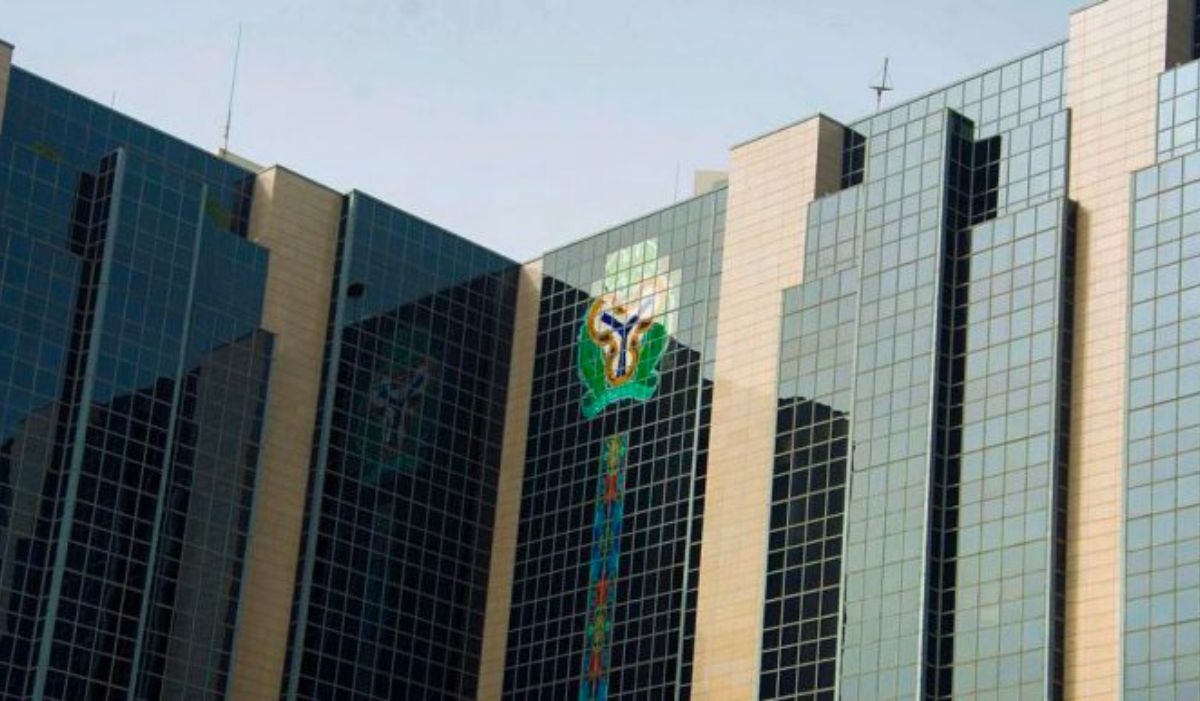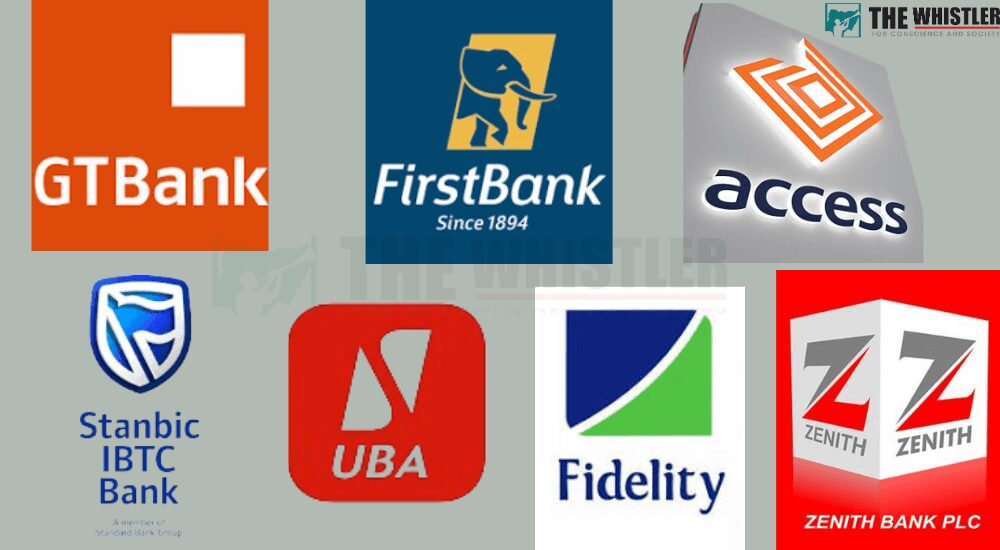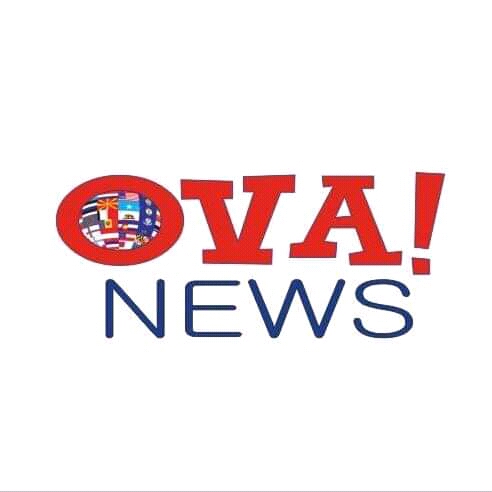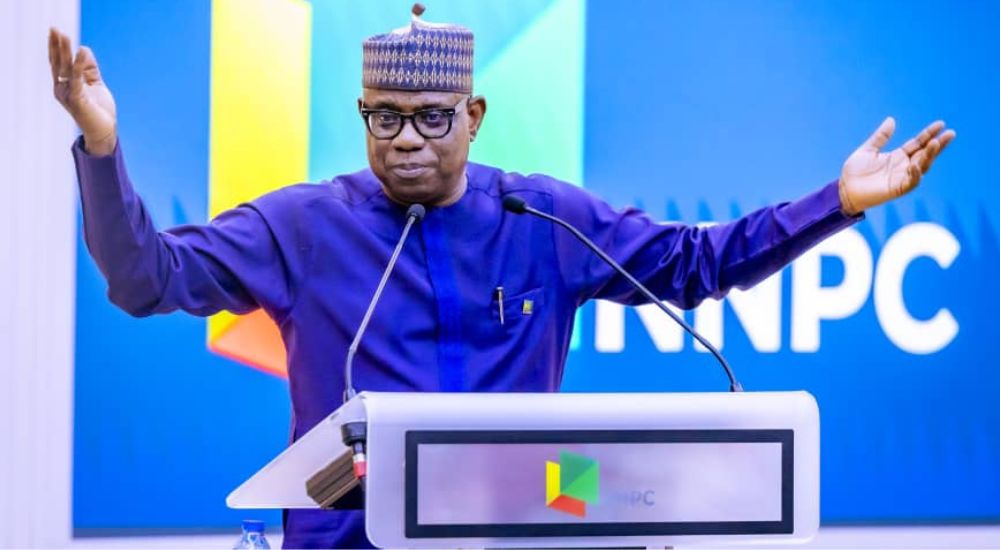Monetary Reforms: Experts Laud Cardoso, Tout Forex Market Unification, Investor Confidence As Fruits

…FX Market Unification Narrows Black Market Arbitrage
…Reforms Putting Nigeria’s Economy In Better Position – IMF, Moody’s, Others
On Friday, the naira appreciated to ₦1,590 per dollar in the parallel market, gaining ₦20 from ₦1,610/$ recorded on Thursday. This marks the third time the local currency has rebounded to the ₦1,500/$ range since February 2024.
According to data released by the CBN, the gap between the official and parallel market rates narrowed significantly to ₦36 per dollar, down from ₦70 the day before.
The improved performance in the parallel market is an indication of growing confidence in the naira, even as fluctuations persist in the official window.
This gain may have passed unnoticed by the general public but it underscores the gains the nation has been recording in monetary policy reforms in the past 20 months.
To underscore the import, an economist and Senior Partner at SPM Professionals, Dr. Paul Alaje, said the Central Bank of Nigeria under the present governor, Mr. Olayemi Cardoso, inherited an foreign exchange market “where the gap between the parallel market and the official market were like sky and earth.”
According to him, these had implications on confidence in the naira.
Alaje told THE WHISTLER, “One thing the administration has done is that it has managed to ensure level of stability around N1550 to N1,600 per dollar.”
One of the CBN governor’s first major policy decisions was the unification of Nigeria’s multiple exchange rates. Previously, the country operated various official and parallel market rates that encouraged arbitrage and reduced transparency. The CBN moved towards a single, market-determined exchange rate regime, allowing the naira to float more freely and better reflect market realities. This shift helped to eliminate distortions, reduce speculation, and improve overall investor confidence in the Forex system, according to experts.
Under Cardoso’s leadership, the CBN reintroduced the willing-buyer, willing-seller model to promote greater flexibility and reduce artificial controls in the FX market.
This system allows buyers and sellers of foreign currency to negotiate rates freely, with minimal central interference. In tandem, the apex bank occasionally intervenes in the market to manage excessive volatility, ensuring a balance between liberalisation and stability.
The model encouraged price discovery and helped establish a more realistic valuation of the naira, while also attracting more participants into the formal FX market.
The policy has enabled the naira to continue appreciating in the foreign exchange market.
Speaking during the last Monetary Policy Committee meeting held on May 25, Cardoso had said that the reforms so far implemented by the apex bank were beginning to yield tangible results.
He said, “I dare say that if those actions had not been taken when they were, the results would have been a lot more disastrous. It would have been not even more, they would have been disastrous for us.
He added, “On the issue of depreciation of the currency, which obviously everybody is always very interested in, you find out that the various currencies of the world were under attack and were having to defend themselves. You find that relative to other countries, Nigeria came out very well indeed.
“We were able to ensure that our depreciation was very, very modest and that the stability was pretty much there. And that, in my view, was a reflection of a lot of the measures that we had taken prior to this time to stabilize our economy.”
He said it was the right decision for the apex bank to have started the reforms early, adding that “we stayed the course to the point where we built buffers which are able to withstand shocks that come in.”
Another core reforms involved scaling back excessive government intervention in foreign exchange pricing. By reducing administrative controls and allowing the naira to find its true market value, the CBN facilitated a more transparent and investor-friendly environment. This approach, according to experts, discourages rent-seeking behaviour and supported the development of a more robust and autonomous currency market.

A Mandate For Reform: Cardoso’s Appointment Amid Crisis
Upon assumption of office, Cardoso faced a multitude of significant economic challenges that required immediate and decisive action. Nigeria’s inflation rate had surged to 33.88 per cent, up from 28.20 per cent at the start of the year. The persistent inflation was driven by rising fuel prices, exchange rate depreciation, and supply chain disruptions.
The naira experienced significant depreciation before Cardoso’s tenure. This depreciation was attributed to a backlog of over $7bn in unmet foreign exchange commitments and a fragmented exchange rate system
Before Cardoso’s appointment, the CBN had been financing government deficits through Ways and Means advances, which had reached an unsustainable level of ₦22.7tn by 2023. This practice undermined the CBN’s primary mandate of price stability and eroded market confidence.
Nigeria’s economy faced structural issues, including declining oil production, inadequate economic diversification, and infrastructure constraints. These factors contributed to a decline in government revenue and foreign exchange inflows, while public expenditures increased, leading to a deterioration in macroeconomic indicators.
The banking sector faced public skepticism regarding its transparency and efficiency, exacerbated by the complexities of post-pandemic recovery and global economic uncertainties.
Through targeted policies, transparent market operations, and stronger coordination between monetary and fiscal authorities, Cardoso outlined a pathway to a more stable exchange rate regime, lower inflation, and an overall more enabling environment for economic growth.
Barely 20 months into his tenure, Cardoso’s reform strategy, anchored on monetary tightening, foreign exchange market transparency, and improved financial governance, is taking shape, according to experts. They opin that these efforts are laying the groundwork for lasting macroeconomic stability and ushering in a new era of transparency and investor confidence.
Since assuming office in 2023, Cardoso has introduced a series of far-reaching reforms aimed at stabilising the foreign exchange (FX) market, improving dollar liquidity, and restoring investor confidence. These reforms have been pivotal in addressing long-standing structural challenges and repositioning Nigeria’s monetary framework for long-term growth and stability.
Clearing Backlog, Restoring FX Market Credibility
The Director General of the Centre for the Promotion of Private Enterprise, Muda Yusuf, told THE WHISTLER that the administration came in when the fundamentals of the economy were broken. One area this was manifest was in foreign exchange obligations.
The CBN under Cardoso’s leadership made significant efforts to address the country’s outstanding foreign exchange obligations, estimated at over $7bn. Settling these backlogs —payments owed to airlines, manufacturers, and foreign investors — was critical to rebuilding trust in the Nigerian market. By honouring these obligations, the CBN sent a strong signal to international investors and trading partners about Nigeria’s commitment to financial transparency and stability.
According to the CBN governor, the outstanding forex clearance took far longer than they earlier anticipated.
He said, “In addressing foreign exchange liquidity constraint, decisive steps have been taken to clear the outstanding $7bn forex backlog to ensure that businesses, multinationals, corporations and foreign investors can repatriate funds seamlessly
“This initiative has restored confidence among market participants and reinforced Nigeria’s commitment to honouring financial obligations in a timely and efficient manner. Talking about the $7bn backlog, we have cleared the verified claims.
“We also looked at the unverified ones, and I believe that we are at the final stages of separating what qualifies as fully verified, and we will surely be paying out those money that have been verified by the forensic auditors. It is unfortunate, to be honest, that it has taken so long.
“But the truth of the matter is that there were a lot of practices that went on that really should never have happened in the first place. That said, we are going to ensure that we do what we need to do to strengthen our market and create a better trust in what you investors naturally desire and deserve.”
Restoring Investors’ Confidence, Attracting Capital
To attract both foreign direct investment (FDI) and portfolio inflows, the Cardoso-led CBN adopted a series of measures to make Nigeria a more attractive destination for capital. These included raising benchmark interest rates to improve returns for investors, enhancing the ease of profit repatriation, and maintaining policy consistency to reassure the global financial community. These actions were aimed to reverse capital flight and increase dollar inflows into the Nigerian economy.
The Nigerian economy is beginning to turn the corner with an increased investor confidence, growing reserves, and macroeconomic stability.
“Thanks to the steps taken over the past 18 months, we have strengthened our monetary buffers and positioned Nigeria to better withstand external shocks,” Cardoso said.
He noted that the country’s delegation to Washington DC last April used the IMF/ World Bank Spring meetings “as a platform to spotlight Nigeria’s bold economic reforms and explore further measures to enhance macroeconomic stability, strengthen our financial system, and drive inclusive growth for all Nigerians.
“To all Nigerians: these reforms are not easy, but they are delivering results. We have moved from a position of vulnerability toward one of growing strength, and our economic trajectory is beginning to turn positive.”
Sanity Returns To FX Operations
Recognising the impact of speculators and unregulated actors on FX volatility, the CBN launched a crackdown on unethical practices in the market. It imposed tighter regulations on Bureau de Change (BDC) operators and raised their minimum capital requirement to approximately ₦2bn to strengthen oversight and professionalism in the sector.
In January 2025, the apex bank also introduced the Nigerian Foreign Exchange (FX) Code, a comprehensive regulatory framework aimed at promoting ethical conduct, professionalism, and transparency among authorized dealers. The FX Code ensured that all market participants operate with integrity and adhere to global best practices in currency trading.
The code consists of six guiding principles and 52 sub-principles, which Cardoso said must become the standard for conduct across all participating institutions.
The core principles include ethics, governance, execution, information sharing, risk management and compliance, and confirmation and settlement processes.
The introduction of the document was particularly crucial for the success of the apex bank’s monetary interventions in the economy considering that forex plays a critical role in price and economic stability, especially for economies including Nigeria that depends on imports, export or foreign debt.
A stable and well-managed forex policy is essential for maintaining inflation control, economic growth, financial stability, and investor confidence as countries often use tools like interest rates, forex reserves, and capital controls to manage exchange rate fluctuations and ensure economic stability
The CBN governor said the FX code represented a firm rejection of previous distortions in the market and an equally firm commitment to a future defined by fairness, trust, and market-driven principles.
The governor warned that the central bank would not tolerate any attempts to revert to past unethical practices, adding that any individual or institution that violates the FX code will face swift and decisive sanctions.
He said the central bank will not hesitate to act against any institution or individual that undermines the integrity of the country’s financial markets, adding that the code remains a binding commitment to accountability and transparency.
Cardoso said, “Let us be clear; the system itself played a key role in the challenges of the past. Unethical behaviours and systemic abuses – whether by those with privileged access or by complicit participants eroded public trust and harmed our economy.
“Our journey towards market reform is already yielding results. The year 2024 was marked by structural reforms that sought to return the naira to a freely determined market price and ease volatility as several distortions were removed from the market.”
The international community believed the currency is now reflective of its real rate and currently more competitive, largely because of the reforms so far introduced since the new emergence of the current leadership of the bank.
Cardoso confirmed that these reforms have continued to attract foreign investors into the economy, vowing that the monetary authority will do everything possible to ensure that current inflows continue, and preserve the positive outcomes – thus the advent of the FX code.
Recapitalisation For Resilience
In March last year, the CBN under Cardoso had announced new guidelines on its recapitalisation policy for banks in the country, directing commercial banks with international authorisation to increase their capital base to N500bn and national banks to N200bn.
Commercial banks with national licences must meet a N200bn threshold, while those with regional authorisation are expected to achieve a N50bn capital floor.
Similarly, non-interest banks with national and regional authorisations would need to increase their capital to N20bn and N10bn respectively.
The current capital base is stratified based on the type of banking license – banks with regional, national, and international licenses are currently expected to maintain the minimum capital bases.
The proposed increase in the capital base comes nearly two decades after the CBN’s 2004 banking reform, which increased the then-prevailing capital base from N2bn to N25bn.
Five major Nigerian banks have made progress in their recapitalisation efforts, moving closer to meeting the CBN’s minimum capital requirements.
The banks have ramped up fundraising initiatives to strengthen their financial positions, boosting investor confidence and reinforcing stability in the banking sector.
FirstHoldCo, the parent company of FirstBank, recently concluded its N150bn Rights Issue, which was oversubscribed by 25 percent, bringing total subscriptions to N187.6bn.
The group now plans to proceed with a N350bn Private Placement to further bolster FirstBank’s capital base, support innovation, and drive sustainable growth.
Wema Bank has announced plans to raise N200bn in fresh capital. This includes a N150bn Rights Issue, currently awaiting approval from the Securities and Exchange Commission (SEC), and a N50bn Private Placement, set to commence on April 1, 2025. The latest round follows a successful first tranche, which raised N40bn.
Fidelity Bank is also advancing its recapitalization agenda. It has entered the second phase of its capital raise, with a Private Placement approved by the CBN. The offering is expected to launch in the second half of 2025.
Cardoso says the recapitalisation policy not only strengthens financial stability but also serves as a catalyst for inclusive growth.
“By enabling banks to extend more credit to MSMEs, we enhance job creation and productivity. Furthermore, with increased capital, banks can invest in technology and innovation, crucial for driving digital financial services such as mobile money and agent banking. These technologies are key to breaking down geographic and economic barriers, bringing financial services to even the most remote areas,” he stated.
He said Nigeria had what it takes to deepen financial inclusion and support the growth of business and economy. According to him, recapitalisation exercise will also support government’s efforts to achieve $1tn economy.
“The non-performing loan ratio remains within the prudential benchmark of five per cent, showcasing strong credit risk management. The banking sector liquidity ratio comfortably exceeds the regulatory floor of 30 per cent, a level which ensures banks are maintaining adequate cash flow to meet the needs of customers and their operations. The recent stress test conducted also reaffirmed the continued strength of our banking system,” he added.
Cardoso explained that the banking sector remains robust, with key indicators reflecting a resilient system.
“I am pleased to note that a significant number of banks have raised the required capital through right issues and public offerings well ahead of the 2026 deadline. I believe that the banking sector is in a strong position to support Nigeria’s economic recovery by enabling access to credit for MSMEs and supporting investment in critical sectors of our economy,” he said
Gains From Cardoso’s Reform Agenda
Collectively, these reforms have yielded significant gains. The FX market has become more transparent and efficient, dollar liquidity has improved, and foreign investor sentiment is gradually recovering. The naira, while still subject to volatility, is now priced more realistically, and speculative pressure has eased.
More importantly, Cardoso’s policy direction has re-established the credibility of the Central Bank and laid a firm foundation for macroeconomic resilience in the years ahead.
Just recently, the Central Bank of Nigeria (CBN) announced a Balance of Payments (BOP) surplus of $6.83bn for the 2024 financial year, marking a decisive turnaround from deficits of $3.34bn in 2023 and $3.32bn in 2022.
This improvement reflects the impact of wide-ranging macroeconomic reforms, stronger trade performance, and renewed investor confidence in Nigeria’s economy.
The current and capital account recorded a surplus of $17.22bn in 2024, underpinned by a goods trade surplus of $13.17bn, while petroleum imports declined by 23.2 per cent to $14.06bn.
On the export side, gas exports rose by 48.3 per cent to $8.66bn, and non-oil exports increased by 24.6 per cent to $7.46bn. Remittance inflows remained resilient, with personal remittances rising by 8.9 per cent to $20.93bn.
International Money Transfer Operator (IMTO) inflows surged by 43.5 per cent to $4.73bn, up from $3.30bn in 2023, reflecting stronger engagement from the Nigerians in diaspora.
The CBN stated that official development assistance also rose by 6.2 per cent to $3.37bn, with improved financial account and reserve position whch enabled Nigeria to record a net acquisition of financial assets totalling $12.12bn.
Portfolio investment inflows more than doubled, increasing by 106.5 per cent to $13.35bn, while resident foreign currency holdings grew by $5.41bn, indicating stronger confidence in domestic economic stability.
The country’s external reserves increased by $6.0bn to $40.19bn by year-end 2024, bolstering its external buffer.
Recently, President Bola Tinubu disclosed that his administration had received over $30bn in commitments from foreign investors in less than two years of his administration, further demonstrating that his policies have yielded positive results, making the country increasingly attractive to domestic and international investors.
Essentially, the policy reforms and policy initiatives by Cardoso have led to more transparency in FX market operations as well as earned the apex financial regulatory institution improved ranking by global ranking agencies as well as commendations from the World Bank.
IMF, World Bank, Moody’s, Others Recognize Reforms Impact
Cardoso’s reforms have been recognized as a model for the African continent. Last month, he was named the Central Bank Governor of the Year at the 2025 African Banker Awards Gala. The event was held in Abidjan, Côte d’Ivoire.
The award, presented by African Banker magazine, recognizes Cardoso’s “bold and strategic” leadership in steering monetary and regulatory reforms that have restored stability and confidence in Nigeria’s financial system, according to event organizers.
The Awards Committee praised the Central Bank of Nigeria under Cardoso for implementing key policy measures aimed at stabilizing the naira, improving transparency in the foreign exchange market, and re-establishing policy credibility.
The Committee noted that these efforts have laid the groundwork for long-term macroeconomic resilience and renewed investor confidence.
“The award reflects the Committee’s recognition of Governor Cardoso’s recent achievements and the Central Bank’s critical role in addressing market imbalances and repositioning the Nigerian economy for sustainable growth,” the organizers said.
The annual event draws senior figures from government, banking, and development finance institutions across the continent to celebrate excellence in African finance.
Global credit ratings agency Moody’s has also upgraded Nigeria’s sovereign credit rating to ‘B3’ from ‘Caa1’, citing the success of reforms spearheaded by Central Bank of Nigeria (CBN) Governor Olayemi Cardoso.
The agency pointed to significant improvements in the country’s balance of payments and external reserves as key factors behind the decision.
Moody’s praised the overhaul of Nigeria’s foreign exchange management framework, noting that the changes have “markedly improved the balance of payments and bolstered the CBN’s foreign exchange reserves.”
The upgrade comes amid broader optimism about Nigeria’s economic outlook.
Earlier this month, the World Bank reported that the country recorded its fastest economic growth in a decade in 2024, largely due to a strong fourth quarter and improved fiscal management. However, it warned that elevated inflation remains a major concern.
Moody’s acknowledged that inflationary pressures—previously fueled by policy adjustments—are beginning to ease, along with domestic borrowing costs.
These developments, the agency said, have strengthened confidence in the sustainability of recent policy reforms.
“The recent overhaul of Nigeria’s foreign exchange management framework … has markedly improved the balance of payments and bolstered the CBN’s (Central Bank of Nigeria) foreign exchange reserves,” Moody’s said, in a statement.
Reflecting a measured optimism, Moody’s revised Nigeria’s outlook to “stable” from “positive”, warning that the pace of progress may slow if oil prices decline.
Still, it emphasized that the improvements are unlikely to reverse entirely.
“The stable outlook reflects our expectations that external and fiscal improvements will decelerate but will not reverse entirely,” Moody’s concluded.
Reforms Putting Nigeria’s Economy In Better Position – IMF
The International Monetary Fund commended Nigeria’s ongoing economic reforms, describing them as bold measures that have helped stabilise the economy and laid the groundwork for future growth.
The IMF’s assessment was contained in a statement issued at the end of its 2025 Article IV Consultation Mission to Nigeria recently.
The fund noted that the team, led by Axel Schimmelpfennig, engaged with key stakeholders including the Minister of Finance and Coordinating Minister of the Economy, Wale Edun; Central Bank Governor Yemi Cardoso; other senior government officials; as well as representatives from the private sector, academia, and civil society.
IMF in its Article IV consultation report stated: “The Nigerian authorities have taken important steps to stabilise the economy, enhance resilience, and support growth. These reforms have put Nigeria in a better position to navigate the external environment.
“The macroeconomic outlook is marked by significant uncertainty. Elevated global risk sentiment and lower oil prices impact the Nigerian economy.
“Macroeconomic policies need to further strengthen buffers and resilience, reduce inflation, and support private sector-led growth.”
Schimmelpfennig in the statement noted that the cessation of deficit financing by the CBN, the removal of costly fuel subsidies, and improvements in the foreign exchange market were major policy shifts that signaled a commitment to reform.
He stated, “The Nigerian authorities have taken important steps to stabilise the economy, enhance resilience, and support growth. The financing of the fiscal deficit by the central bank has ceased, costly fuel subsidies were removed, and the functioning of the foreign exchange market has improved.
“The reforms since 2023, have put the Nigerian economy in a better position to navigate this external environment.
“Looking ahead, macroeconomic policies need to further strengthen buffers and resilience, while creating enabling conditions for private sector-led growth.”
The report added: “The authorities communicated to the mission that they will implement the 2025 budget in a manner that is responsive to the decline in international oil prices. A neutral fiscal stance would support monetary policy to bring down inflation.
“To safeguard key spending priorities, it is imperative that fiscal savings from the fuel subsidy removal are channeled to the budget.
“In particular, adjustments should protect critical, growth-enhancing investment, while accelerating and broadening the delivery of cash transfers under the World Bank-supported program to provide relief to those experiencing food insecurity.”
In response to these risks, the IMF urged policymakers to sustain the current policy trajectory and adopt a tighter monetary stance to curb inflation.
“A tight monetary policy stance is required to firmly guide inflation down. The Monetary Policy Committee’s data-dependent approach has served Nigeria well and will help navigate elevated macroeconomic uncertainty. Announcing a disinflation path to serve as an intermediate target can help anchor inflation expectations,” it added.
Cardoso’s Reform Impacting Nigeria’s Economy Positively – Experts
The Director General of the Centre for the Promotion of Private Enterprise, Muda Yusuf, lauded Cardoso for fixing the country’s forex market.
The CCPE boss said, “You had a situation where our net external reserves were less than $5bn, and the FX market was filled with corruption and irregularities.
“There was unbridled printing of money to finance the last administration, worth about N22tn. The printing and spending were not appropriated by the National Assembly, which was a major illegality.”
Yusuf added that the orthodox monetary policy stance of the CBN has had a positive impact on the country.
Alaje also lauded the current leadership for it’s impact in external reserves.
He said, “Another major win for the administration is that at the time they took over, our import cover was less than two months at the time but that has increased to 7.5 months import cover, which is commendable. Nigeria was owing in terms of exchange rate, but today, it has reduced significantly.”
Appointed by President Bola Tinubu as Governor of the Central Bank of Nigeria (CBN) in September 2023, in the heat of a crisis that demanded credibility, competence, and courage, Cardoso has taken the reins of a Central Bank burdened by opacity, heavy-handed interventions, and a credibility deficit to an enviable height, according to experts.
At the 2025 African Banker Awards held in Abidjan, Côte d’Ivoire, Cardoso was named Central Bank Governor of the Year, a testament to his “bold and strategic” leadership in stabilising the naira, fostering transparency in the foreign exchange market, and restoring institutional credibility to the CBN.
Monetary Reforms: Experts Laud Cardoso, Tout Forex Market Unification, Investor Confidence As Fruits is first published on The Whistler Newspaper





